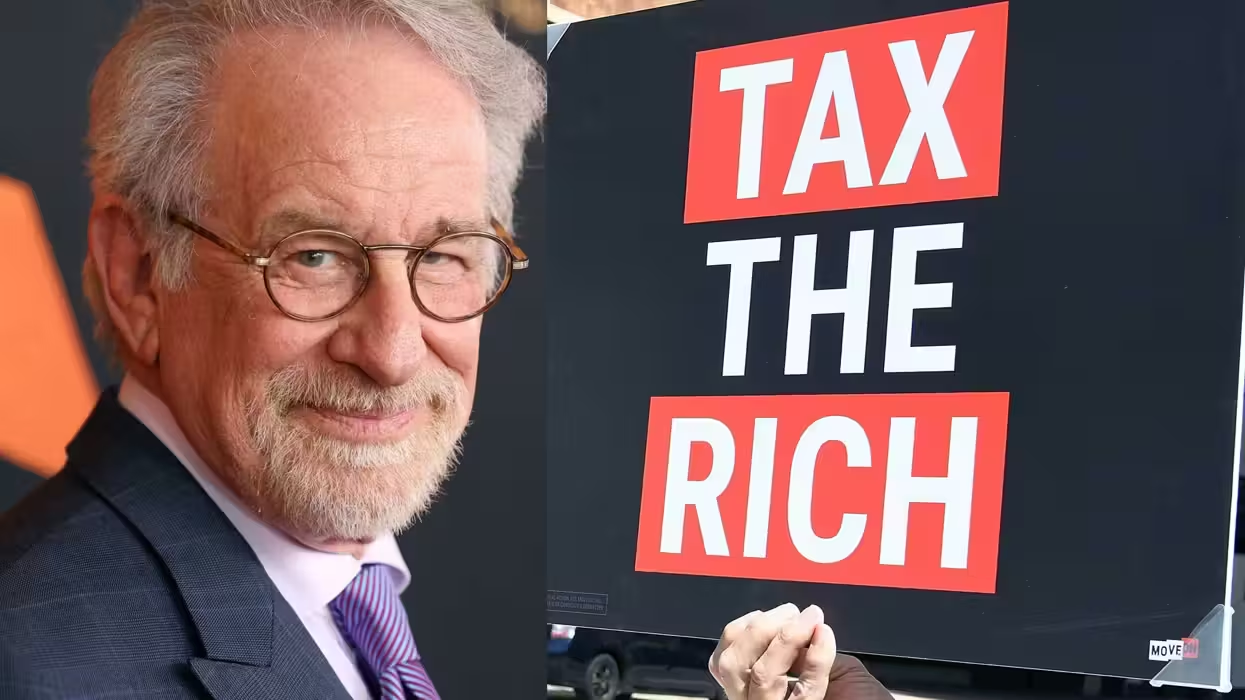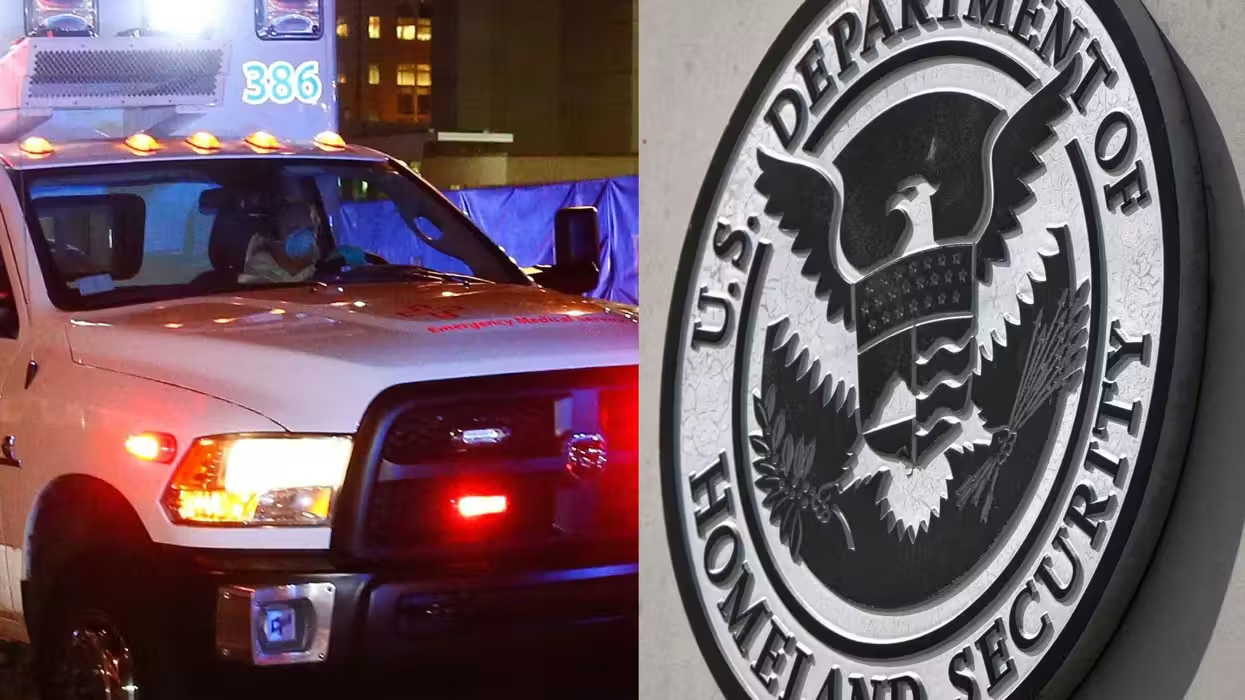
© 2026 Blaze Media LLC. All rights reserved.
Glenn Beck: Here are our constitutional rights, what they mean, and how they're under attack
March 09, 2018
Do Americans honor the Constitution? For that matter, do most of us even know what it is, what it means, or why it was written in the first place?
The United States Constitution, our country’s supreme law since 1789, begins with the three words "We the People." This is a clear indication that our government was created to serve the citizens, and not the other way around. For over two centuries, the Constitution has protected the interests of the American people, safeguarding our rights and liberties through the establishment of a separate and balanced government.
The Constitution was originally comprised of seven articles. The first three establish the doctrine of separation of powers by dividing the federal government into three branches: the legislative, the executive, and the judicial.
The first ten amendments, which became a part of the Constitution in 1791, and are known as the Bill of Rights.
On today's show, Glenn Beck gave us a recap of the first ten amendments of the Constitution and broke down the many ways that our Constitutional rights are under attack.
The Bill of Rights are not gifts to the people from the government, explained Glenn. "This is a contract that handcuffs the government. You [the government] can never ever do these things. But let me show you what they're doing."
The First Amendment: The right to freedom of speech, religion, the press, assembly, and petition.
Congress shall make no law respecting an establishment of religion or prohibiting the free exercise thereof, or abridging the freedom of speech or of the press, or the right of the people peaceably to assemble and to petition the government for a redress of grievances.
How freedom of the press is under attack
Though President Donald Trump makes no secret of his dislike for the press, the past two presidential administrations went far beyond words in their attacks against the First Amendment. During the Bush administration, US Prosecutor Patrick Fitzgerald used subpoenas and threats to pressure reporters to give up their sources regarding the Valerie Plame scandal.
A few years later, President Obama doubled down on Bush's example by launching a full Justice Department investigation into Fox News reporter, James Rosen, which included rifling through personal emails and phone records, in a probe into classified leaks. The Obama administration labeled Rosen as a criminal co-conspirator and a flight risk, then used that to spy on the press.
How freedom of speech is under attack
Have you seen what's happening on college campuses lately? If you are a conservative voice, your speaking engagement might turn the campus into an all out war zone. And that's if the College administration allows you to come in the first place.
How freedom of assembly is under attack
The Obama administration's use of the IRS to target the Tea Party was a direct attempt to stop opposition voices from being able to assemble.
How freedom of religion is under attack
Do you remember when a group of nuns had to take on the US Supreme Court in order to be allowed to opt out of an Obamacare mandate which requires employers to provide health care coverage for contraception? Then there are the many private businesses which have been forced to compromise their faith over the issue of gay marriage.
"The First Amendment is slowly getting whittled down line by line," said Glenn. "Soon, there's going to be nothing left."
The Second Amendment: The right to bear arms.
A well-regulated militia being necessary to the security of a free state, the right of the people to keep and bear arms shall not be infringed.
The Third Amendment: No quartering of soldiers
No soldier shall, in time of peace, be quartered in any house without the consent of the owner, nor in time of war but in a manner to be prescribed by law.
The Fourth Amendment: Protection from unreasonable searches, and seizure of papers, person or property.
The right of the people to be secure in their persons, houses, papers, and effects against unreasonable searches and seizures shall not be violated, and no warrants shall issue but upon probable cause, supported by oath or affirmation, and particularly describing the place to be searched and the persons or things to be seized.
The Fifth Amendment: Protection of life, liberty and property
No person shall be held to answer for a capital or otherwise infamous crime unless on a presentment or indictment of a grand jury, except in cases arising in the land or naval forces, or in the militia, when in actual service in time of war or public danger; nor shall any person be subject for the same offense to be twice put in jeopardy of life or limb; nor shall be compelled in any criminal case to be a witness against himself, nor be deprived of life, liberty, or property without due process of law; nor shall private property be taken for public use without just compensation.
The Sixth Amendment 6: Right to a speedy and public trial, a jury, face accuser, witnesses, council
In all criminal prosecutions, the accused shall enjoy the right to a speedy and public trial by an impartial jury of the state and district wherein the crime shall have been committed, which district shall have been previously ascertained by law, and to be informed of the nature and cause of the accusation; to be confronted with the witnesses against him; to have compulsory process for obtaining witnesses in his favor; and to have the assistance of counsel for his defense.
The Seventh Amendment: Rights in civil cases, trial by jury
In suits at common law, where the value in controversy shall exceed twenty dollars, the right of trial by jury shall be preserved, and no fact tried by a jury shall be otherwise reexamined in any court of the United States than according to the rules of the common law.
The Eighth Amendment: No excessive bail or fines, no cruel and unusual punishments
Excessive bail shall not be required, nor excessive fines imposed, nor cruel and unusual punishments inflicted.
The Ninth Amendment: Other rights kept by the people
The enumeration in the Constitution of certain rights shall not be construed to deny or disparage others retained by the people.
The Tenth Amendment: Undelegated powers kept by the states or the people
The powers not delegated to the United States by the Constitution, nor prohibited by it to the states, are reserved to the states respectively, or to the people.
Watch the video clip above to hear more.
To see the full episode, subscribers of TheBlaze can watch “Glenn” live weekdays 5-6 p.m. ET or on demand here.
Not a subscriber? Sign up for a FREE trial here.
Want to leave a tip?
We answer to you. Help keep our content free of advertisers and big tech censorship by leaving a tip today.
Want to join the conversation?
Already a subscriber?
News, opinion, and entertainment for people who love the American way of life.
BlazeTV
BlazeTV Staff
News, opinion, and entertainment for people who love the American way of life.
@BlazeTV →more stories
Sign up for the Blaze newsletter
By signing up, you agree to our Privacy Policy and Terms of Use, and agree to receive content that may sometimes include advertisements. You may opt out at any time.
Related Content
© 2026 Blaze Media LLC. All rights reserved.
Get the stories that matter most delivered directly to your inbox.
By signing up, you agree to our Privacy Policy and Terms of Use, and agree to receive content that may sometimes include advertisements. You may opt out at any time.






